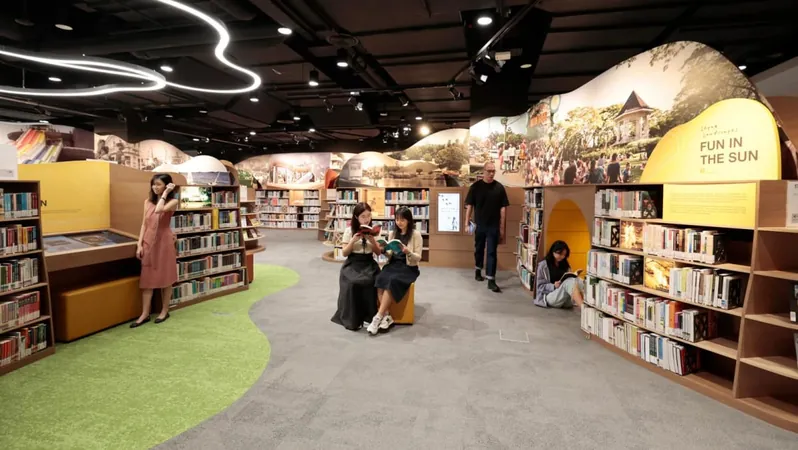
Singapore's Literary Community Calls Out National Library Board Over Generative AI Concerns
2025-01-08
Author: Arjun
Introduction
In a bold move that has sent ripples through Singapore's literary landscape, prominent members of the local writing and publishing community have come together to voice their dissent against the National Library Board's (NLB) current stance on generative artificial intelligence (AI). On January 7, these writers issued a collective statement calling for a reevaluation of the NLB’s initiatives involving AI technology.
Growing Support for the Statement
The statement, which garnered initial support from 68 signatories—including notable figures like playwrights Alfian Sa'at and Haresh Sharma—has seen its numbers swell to 82 as of the morning of January 8, as reported by Ng Yi-Sheng, one of the leading voices behind the statement.
Concerns Raised by Writers
In their declaration, the writers expressed their deep-seated concerns over what they characterized as NLB's 'uncritical endorsement of generative AI.' They urged policymakers to tread carefully in their adoption of this cutting-edge technology, warning of potential long-term repercussions for Singapore's vibrant literary ecosystem.
Specific Initiatives Criticized
The statement was directed specifically at key NLB figures, including Chairman Lee Seow Hiang, CEO Ng Cher Pong, Chief Librarian Gene Tan, and Minister for Digital Development and Information Josephine Teo. The writers criticized initiatives like StoryGen, a collaborative prototype created with Amazon Web Services, which allows library patrons to reimagine classic Singaporean folktales and stories such as 'The Little Red Riding Hood' using generative AI.
Key Questions and Concerns
The group raised significant questions regarding the implications of such technologies, stating, 'In your ongoing efforts to make generative AI accessible to all, you have failed to consider if these initiatives serve the public interest and align with your mission to promote reading and encourage learning through the use of libraries.'
Intellectual Property and Other Critical Issues
Among the multifaceted concerns highlighted were issues of intellectual property, the psychological ramifications of AI-generated content, the overall quality of such works, and the environmental footprint associated with AI technologies. The signatories requested that the NLB review and amend its policies and programs to move away from insinuating that generative AI could replace traditional literary development.
Call for Dialogue with Literary Community
Moreover, they insisted on the necessity for an open dialogue between NLB and Singapore's literary community. The authors emphasized the importance of fostering a rich literary culture, stating, 'We trust that you will remember this valuable role you play in our society and invest wisely in policies that will enrich, not impoverish, our literary culture.'
Global Context
The conversation around the implications of generative AI within cultural institutions is a pressing one, not only in Singapore but globally. As technology continues to evolve, the need for thoughtful integration of AI in creative fields remains paramount. The NLB has been approached for its perspective on this matter, but it has yet to respond publicly.
Conclusion
Stay tuned as this story develops, with potential future discussions poised to shape the future of the literary landscape in Singapore.


 Brasil (PT)
Brasil (PT)
 Canada (EN)
Canada (EN)
 Chile (ES)
Chile (ES)
 Česko (CS)
Česko (CS)
 대한민국 (KO)
대한민국 (KO)
 España (ES)
España (ES)
 France (FR)
France (FR)
 Hong Kong (EN)
Hong Kong (EN)
 Italia (IT)
Italia (IT)
 日本 (JA)
日本 (JA)
 Magyarország (HU)
Magyarország (HU)
 Norge (NO)
Norge (NO)
 Polska (PL)
Polska (PL)
 Schweiz (DE)
Schweiz (DE)
 Singapore (EN)
Singapore (EN)
 Sverige (SV)
Sverige (SV)
 Suomi (FI)
Suomi (FI)
 Türkiye (TR)
Türkiye (TR)